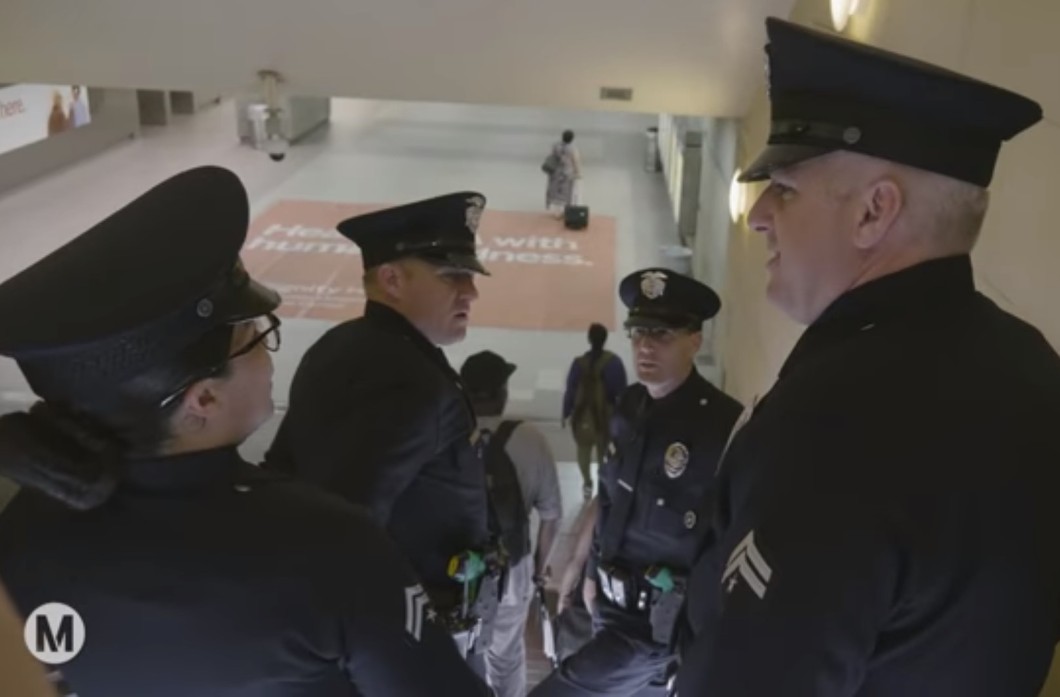Note: GJEL Accident Attorneys regularly sponsors coverage on Streetsblog San Francisco and Streetsblog California. Unless noted in the story, GJEL Accident Attorneys is not consulted for the content or editorial direction of the sponsored content.
Streetsblog was sent a matrix of "I-880 Operational and Safety Improvement at 29th and 23rd Avenue Overcrossings," issued July 29 (PDF). It lists a series of planned improvements in reaction to criticisms from Streetsblog, Bike East Bay, and others of some newly completed and incredibly dangerous over-crossings in East Oakland.
Readers may recall Streetsblog has twice taken the designers of these $62 million over-crossings to task: first, for creating a dangerous and noxious environment for anyone not in a car. And then again when Caltrans and the Alameda County Transportation Commission boasted about the bridges and how they are "creating safe, healthy biking and walking options in Oakland and Alameda."
Caltrans and ACTC's responses to the criticism, as listed in the sheet, are not exactly encouraging. While the improvements, a couple of which have already been completed, are welcome, they don't address core problems. For example, Caltrans added a second stripe to the unprotected, unbuffered gutter-pans they call bike lanes:
They also added some more green paint to a dangerous and essentially unusable bike lane heading south on the 23rd Avenue over-pass, as seen in the lead image.
"The challenge for the design was to widen the over-crossing for bicycles, pedestrians, and vehicles, while raising the bridge profile and minimizing impacts to the school and the neighborhood. There is very limited space," wrote the bridge designers in their list of excuses. "At the time of design, twelve-foot vehicle travel lanes were required by Caltrans. Inlets were required to capture water runoff into storm drain systems. Where those inlets fall within the bike lane, a flat bicycle traversible grate type was incorporated."
Well, thanks for not putting in old-school tire-grabber grates. But they're brand new bridges that go through the air, not down some canyon that requires them to be narrow (which they aren't by any measure). And what kind of circular nonsense is it to say that Caltrans had to design twelve-foot vehicle lanes because Caltrans said twelve-foot lanes are required? Including long turn pockets and merges, there are essentially six vehicle lanes between the two bridges. They can't now claim there was no room for full sidewalks and protected bike lanes.
This is a route with big rigs and cement trucks rumbling past at near freeway speeds. That requires robust, concrete, well-thought out bike infrastructure, not a stripe (or even two) along a required drainage strip.
The further irony of the lanes was brought to Streetsblog's attention by Bike East Bay's Dave Campbell, whose comments and critiques are included in the matrix. When the south bound "bike lane" spills off into the horseshoe that leads to the Park Street bridge, it just ends. No turn off. No guidance. It just ends, with cyclists aimed into oncoming traffic (see pics below).
A cyclist coming off of this bike lane and unsure where to go next could easily find themselves under the wheels of a turning truck:
In the response matrix, Campbell said the bike lane needs to continue to the Park Street bridge. The response: "This is a complicated connection and it requires looking at the approach and exits to the intersection. Traffic backs up onto Park St and the City of Alameda is concerned about improvements at this location and the potential to create additional back up."
And that twisted priority, putting motorist delay above the lives and limbs of vulnerable road users, is exactly the problem.
A Complete Streets for Active Living Bill is currently winding its way through Sacramento. It's a first, small step towards forcing Caltrans and ACTC to build infrastructure that's safe for all users. These overpasses, and the excuses made for them, further underscore the need for this legislation, which is under attack (more about that soon on Streetsblog California).
Click here for more information about how to support the bill.






